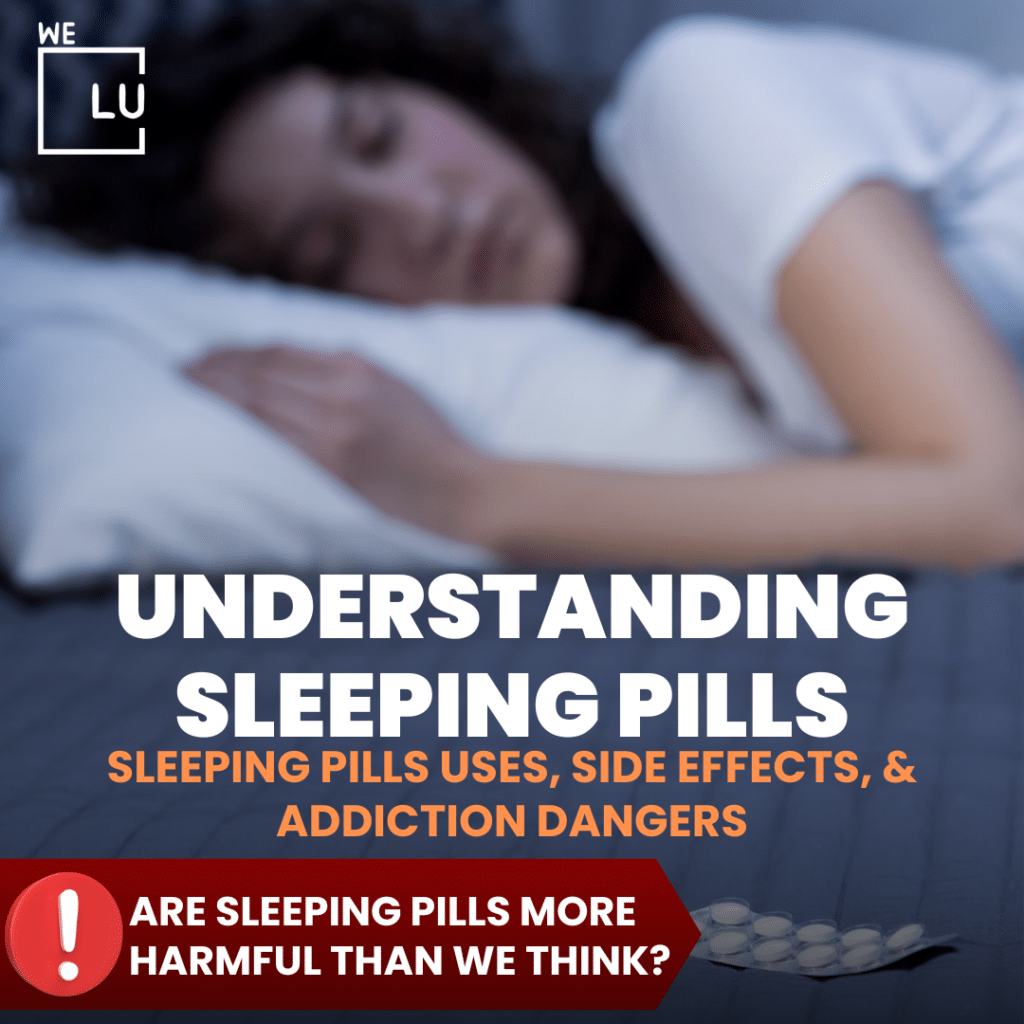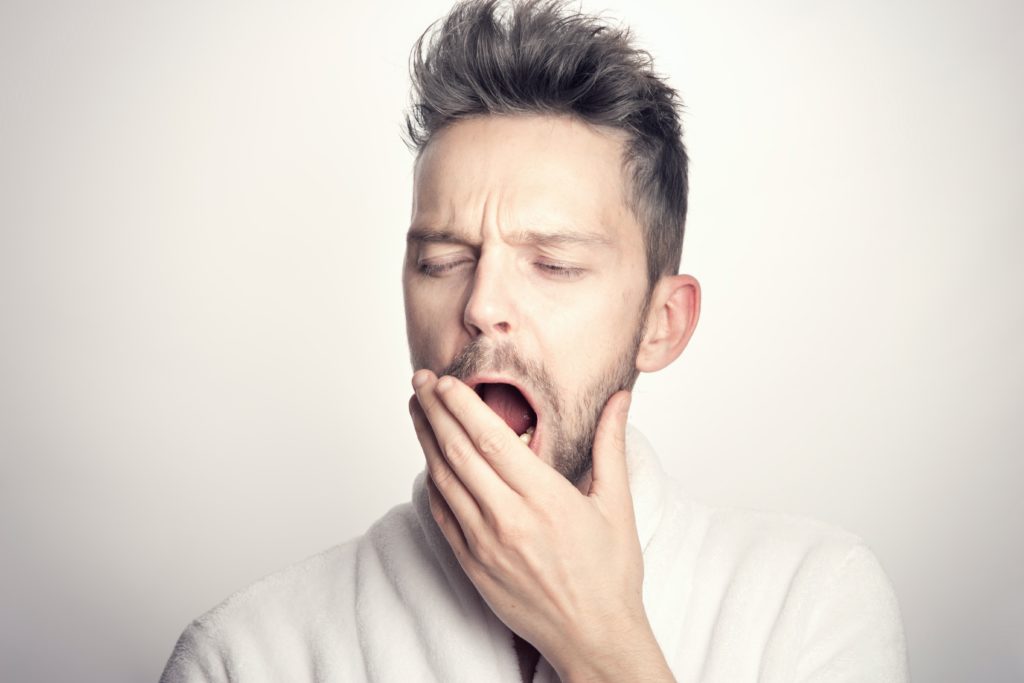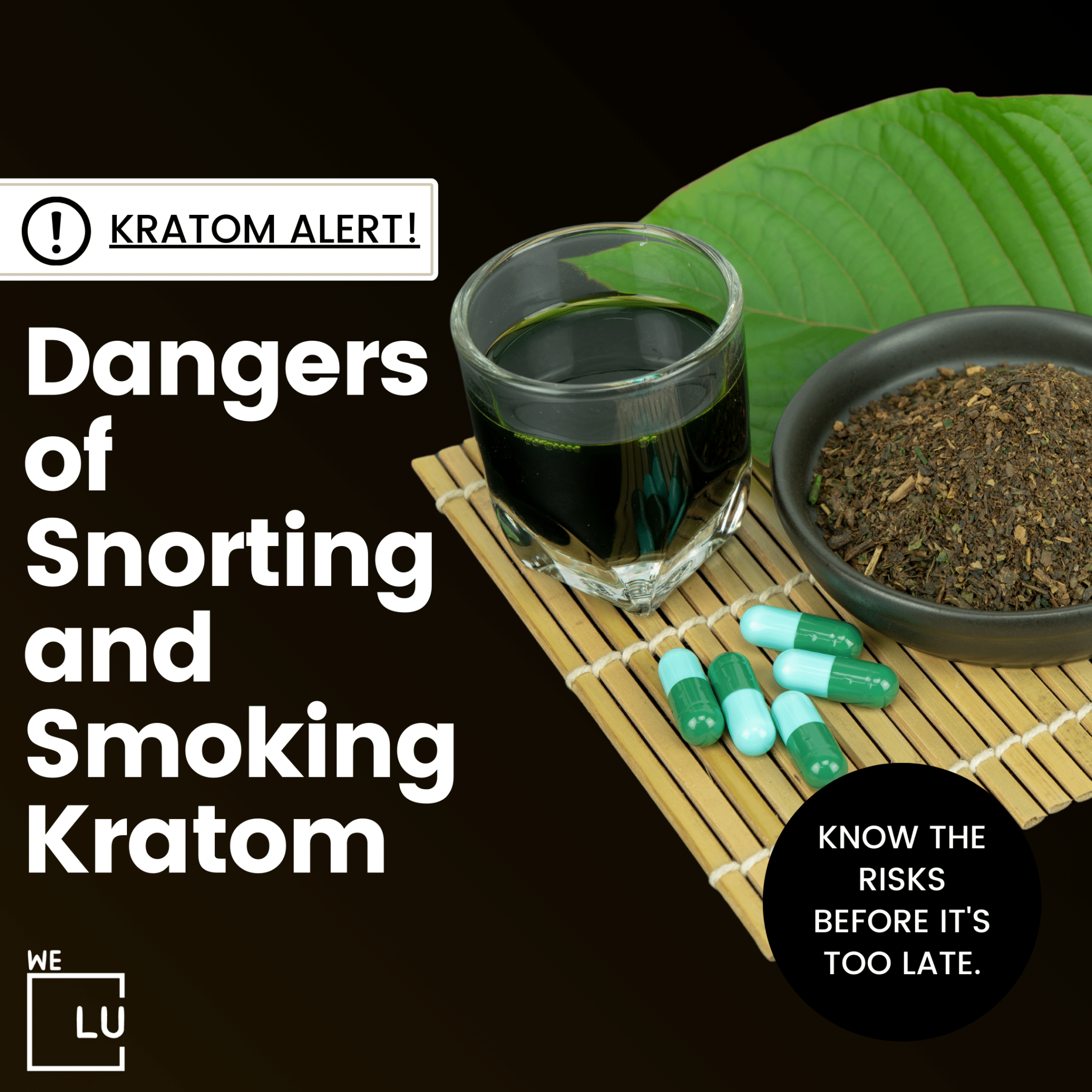Are Sleeping Pills More Harmful Than We Think?
Discover the shocking truth about the hidden dangers of sleeping pills. Sleeping pills prescribed for insomnia can become habit-forming. Unfortunately, many don’t realize their addictive risks and become dependent on them. Sleeping pills addiction dangers can develop quickly. While they may seem like a harmless solution for a good night’s sleep, many people become hooked on these drugs. In fact, between 2006 and 2011 alone, a staggering 38 million prescriptions for Ambien were written.
What’s even more alarming is that medical professionals often endorse the use of sleeping pills, leading people to believe they’re safe and non-addictive. However, the reality is quite the opposite. Countless individuals find themselves unable to sleep without these pills, and as time goes on, they require larger doses to achieve the desired effect. But here’s the real kicker: most people don’t even realize they’re addicted until they try to stop taking the medication. That’s when withdrawal symptoms kick in, serving as a red flag for dependence and addiction. Learn the truth about sleeping pill addiction and how to use them more safely, how to quit, or what treatment to seek for sleeping pill addiction withdrawal symptoms.
If you find it difficult to quit your prescription sleeping pills, We Level Up Treatment Centers pros can help. Call our hotline for tips and resources to withdraw from sleeping pills like Ambien. Our accredited programs provide comfortable and professional sleeping pill detox treatment.
What Are Sleeping Pills?
Sleeping pills, also known as hypnotics or sedatives, are medications designed to induce and maintain sleep for individuals experiencing difficulty falling asleep or staying asleep. These pharmaceutical agents target the central nervous system, specifically the brain, to promote relaxation and sedation. They come in various forms, including prescription and over-the-counter options.
While sleeping pills can be effective in the short term for managing sleep disturbances, they are generally recommended for short durations due to the risk of dependence and potential side effects. Common side effects may include drowsiness, dizziness, and gastrointestinal issues. Individuals must use these medications under the guidance of a healthcare professional to ensure appropriate dosage and minimize potential risks. Additionally, non-pharmacological approaches such as improving sleep hygiene and addressing underlying causes of insomnia are often encouraged for the long-term management of sleep difficulties.
Other Names For Sleeping Pills
Other names can refer to sleeping pills:
- Hypnotics.
- Sedatives.
- Sleep Aids.
- Sleep Medicine.
- Tranquilizers.
How Do They Work?
Sleeping pills influence the central nervous system, particularly the brain, to induce and maintain a state of sleep. The mechanisms of action can vary depending on the specific type of sleeping pill. Read on to learn more about how each type of sleeping pill works.
Types Of Sleeping Pills
Prescription
Sleeping pills are medications obtained with a doctor’s prescription to address various sleep disorders or persistent insomnia. These medications are typically more potent than over-the-counter options and should be used under the guidance of a healthcare professional. Here are some common types of prescription sleeping pills:
- Benzodiazepines:
- Diazepam (Valium), Lorazepam (Ativan), and Alprazolam (Xanax): These medications enhance the effect of the neurotransmitter gamma-aminobutyric acid (GABA), leading to a calming and soothing effect.
- Non-Benzodiazepines (Z-Drugs):
- Zolpidem (Ambien), Eszopiclone (Lunesta), Zaleplon (Sonata): These medications also enhance GABA activity but have a more selective action on specific GABA receptors. They are designed to induce sleep without causing as much daytime drowsiness.
- Melatonin Receptor Agonists:
- Ramelteon (Rozerem): This medication interacts with melatonin receptors in the brain, mimicking the effects of the natural sleep hormone melatonin.
- Orexin Receptor Antagonist:
- Suvorexant (Belsomra): This medication works by blocking the action of orexin, a neurotransmitter that plays a role in wakefulness and arousal.
- Tricyclic Antidepressants:
- Amitriptyline, Doxepin: In lower doses, certain tricyclic antidepressants can be prescribed for their soothing effects to help with sleep.
Prescription sleeping pills carry potential risks and side effects, and they should only be used under the supervision of a healthcare provider. These medications are typically prescribed for short-term use to address acute sleep issues. Long-term use may lead to tolerance, dependence, and other complications.
Over-the-counter
Over-the-counter (OTC) sleeping pills are medications that can be purchased without a prescription for the temporary relief of occasional sleep difficulties. These medications are generally considered safe when used as directed but be aware of their potential side effects and limitations. Here are some common types of OTC sleeping pills:
- Antihistamines:
- Diphenhydramine (e.g., Benadryl): Originally an antihistamine used for allergies, it causes drowsiness and is often included in OTC sleep aids.
- Doxylamine (e.g., Unisom): Another antihistamine commonly used for sleep, can also cause drowsiness.
- Melatonin Supplements:
- Melatonin: Available in various formulations, melatonin is a hormone that regulates the sleep-wake cycle. OTC melatonin supplements help adjust the body’s internal clock and promote sleep.
- Herbal Supplements:
- Valerian Root: Some people use valerian root as an herbal remedy for sleep. It’s believed to have sedative effects, although more research is needed to confirm its efficacy.
- Chamomile: Often consumed as a tea, chamomile is known for its calming properties and is sometimes used to promote relaxation and improve sleep.
Use OTC sleeping pills with caution and only as directed. They are not intended for long-term use, and individuals experiencing persistent sleep problems should consult with a healthcare professional to address underlying issues. If sleep difficulties persist, a healthcare provider can help determine the most appropriate course of action and may recommend prescription medications or non-pharmacological interventions such as cognitive-behavioral therapy for insomnia (CBT-I).

Skip To:
Learn More:
- Primary Insomnia, Specifics, Signs, Symptoms, Diagnosis, Treatment & Therapy Options
- Sleep Anxiety, Symptoms, Risks, Ways to Manage It & Treatments
- Lunesta Detox, Withdrawal, Symptoms, Rebound, Addiction, Timeline & Rehab Treatment
- Dangers of Mixing Ambien and Alcohol, Ambien Specifics, Risks, Side Effects, Overdose Symptoms & Treatment
- Melatonin and Alcohol, Overview, Risks, Complications & Alcoholism Treatment
- Valium Side Effects. How Long Do The Effects Of Valium Last?
- Valium withdrawals, Addiction, Specifics, Physical Dependence, Symptoms & Medication-Assisted Treatment
- How long does valium stay in your system? Metabolites, Factors of Influence, Interactions, Valium Addiction & Treatment
- Mixing Benadryl And Alcohol, Dangers, Misuse, Driving Warnings, Risks In Seniors & Hidden Sources Of Alcohol
- Benadryl Overdose, What is Benadryl? Symptoms Of Overdose, Side Effects & Treatment
- Ativan Addiction, Symptoms, Withdrawal & Treatment
- Ativan Vs Xanax Difference & Similarity. Xanax vs Ativan Which is Stronger? Ativan Vs Xanax Which is Better, Safer & More Effective? Generic Lorazepam Vs Alprazolam Guide.
- Xanax Side Effects, Long-Term Effects, Seizures & Treatment
- Ambien Addiction Treatment, Signs Of Abuse & Effects
What Do They Treat?
Sleeping pills are medications designed to treat various sleep-related issues, primarily insomnia and other sleep disorders. Here are the main conditions that prescription and over-the-counter sleeping pills are commonly used to address:
- Insomnia:
- Difficulty Falling Asleep: Sleeping pills can help individuals who have trouble initiating sleep and need assistance in the early sleep cycle stages.
- Difficulty Staying Asleep: Some people experience difficulty maintaining sleep throughout the night, and sleeping pills can be prescribed to improve sleep continuity.
- Shift Work Sleep Disorder: Individuals who work non-traditional hours, such as night shifts, may struggle with sleep-wake cycle disruptions. Sleeping pills can be used to help them adjust and improve sleep.
- Jet Lag: Sleeping pills, particularly those that target the regulation of the sleep-wake cycle, may be used to manage the symptoms of jet lag and facilitate the adjustment to a new time zone.
- Other Sleep Disorders: Certain sleeping pills may be prescribed to manage specific sleep disorders, such as restless legs syndrome or periodic limb movement disorder.
While sleeping pills can be effective for short-term management of sleep difficulties, they are generally recommended for brief durations due to potential side effects, dependency risks, and the importance of addressing the underlying causes of sleep disturbances. Lifestyle and behavioral interventions and addressing factors contributing to poor sleep hygiene are often part of a comprehensive approach to managing sleep issues. Individuals experiencing persistent sleep problems should consult a healthcare professional to determine the most appropriate action based on their specific situation and needs.
Are Sleeping Pills Addictive?
Yes, some sleeping pills can be addictive, particularly those in the class of medications known as benzodiazepines and certain non-benzodiazepine medications. These medications are often prescribed to help with sleep, anxiety, or other related conditions. Here are some key points related to the addictive potential of sleeping pills:
- Benzodiazepines: Medications such as diazepam (Valium), lorazepam (Ativan), and alprazolam (Xanax) are examples of benzodiazepines. They enhance the effect of the neurotransmitter gamma-aminobutyric acid (GABA) in the brain, leading to soothing and calming effects. Prolonged use of benzodiazepines can lead to tolerance, dependence, and withdrawal symptoms upon discontinuation.
- Non-Benzodiazepines (Z-Drugs): Zolpidem (Ambien), eszopiclone (Lunesta), and zaleplon (Sonata) are examples of non-benzodiazepine medications, often referred to as Z-drugs. While they are generally considered less habit-forming than benzodiazepines, they still carry a risk of dependence, especially with prolonged use or misuse.
- Risk of Dependence and Addiction: The risk of developing dependence and addiction to sleeping pills increases when they are used for an extended period, at higher doses than prescribed, or in ways other than directed by a healthcare professional.
- Withdrawal Symptoms: Abruptly stopping the use of addictive sleeping pills can lead to withdrawal symptoms, including rebound insomnia, anxiety, irritability, and, in severe cases, seizures.
Individuals are prescribed sleeping pills to use them precisely as directed by their healthcare provider. If there are concerns about dependence or addiction, communicate openly with a healthcare professional. They can guide how to taper off the medication gradually or explore alternative strategies for managing sleep difficulties.
Non-pharmacological approaches, such as cognitive-behavioral therapy for insomnia (CBT-I), can be effective in addressing the root causes of sleep issues without the potential risks associated with long-term medication use. Always consult with a healthcare professional before starting, stopping, or modifying any medication.

Get Your Life Back
Find Hope & Recovery. Get Safe Comfortable Detox, Addiction Rehab & Dual Diagnosis High-Quality Care.
Hotline (855) 695-1160
Common Side Effects
Sleeping pills, whether prescription or over-the-counter, can have various side effects. Before using these medications, you should be aware of these potential side effects and discuss them with a healthcare professional. Here are common side effects associated with sleeping pills:
- Daytime Drowsiness: Many sleeping pills can cause residual drowsiness, leading to difficulty concentrating and alertness the next day.
- Cognitive Impairment: Some individuals may experience memory issues or mental impairment, affecting their ability to think clearly and perform daily tasks.
- Dizziness and Unsteadiness: Sleeping pills may cause dizziness or instability, increasing the risk of falls and accidents.
- Gastrointestinal Issues: Nausea, vomiting, constipation, or diarrhea are possible side effects of sleeping pills.
- Dry Mouth: Reduced saliva production can result in a dry mouth, which can bother some individuals.
- Headache: Headaches are reported by some users of sleeping pills.
- Changes in Appetite: Sleeping pills may affect appetite, causing either increased or decreased food intake.
- Allergic Reactions: Rarely, individuals may experience allergic reactions, such as rash, itching, or swelling.
- Parasomnias: Unusual behaviors during sleep, known as parasomnias, can occur. This includes sleepwalking, sleep-eating, or other activities performed while not fully awake.
- Dependency and Tolerance: With prolonged use, some sleeping pills can lead to dependence, where the body becomes accustomed to the medication, and higher doses may be needed to achieve the same effect.
- Rebound Insomnia: Abruptly stopping the use of some sleeping pills can lead to a temporary worsening of insomnia, known as rebound insomnia.
Use sleeping pills under the supervision of a healthcare professional and strictly follow dosage instructions. Before starting a sleep medication, individuals should inform their healthcare provider of any existing medical conditions, drugs, or potential interactions. If side effects persist or worsen, seeking prompt medical advice is recommended. Additionally, non-pharmacological approaches and lifestyle changes should be considered part of a comprehensive strategy for managing sleep difficulties.
Get Help. Get Better. Get Your Life Back.
Searching for an Accredited Drug and Alcohol Rehab Centers in Near You?
Even if you have failed previously and relapsed, or are in the middle of a difficult crisis, we stand ready to support you. Our trusted behavioral health specialists will not give up on you. When you feel ready or just want someone to speak to about therapy alternatives to change your life call us. Even if we cannot assist you, we will lead you to wherever you can get support. There is no obligation. Call our hotline today.
FREE Addiction Hotline – Call 24/7Risks Of Using Sleep Aids
Using sleeping pills, whether obtained over the counter or through a prescription, carries certain risks that individuals should be aware of. Here are some potential risks associated with the use of sleeping pills:
- Tolerance: With prolonged use, the body may begin to tolerate the effects of sleeping pills, requiring higher doses over time to achieve the same sleep-inducing effect.
- Dependency and Addiction: Some sleeping pills have the potential for dependence and addiction if used regularly or in higher doses than prescribed. Abruptly stopping the medication may lead to withdrawal symptoms.
- Daytime Drowsiness and Impairment: Many sleeping pills can cause residual drowsiness, affecting daytime concentration and alertness. This can increase the risk of accidents or decreased cognitive performance.
- Cognitive and Behavioral Changes: Some individuals may experience changes in memory, attention, and behavior as a result of using sleeping pills.
- Rebound Insomnia: Abruptly stopping the use of certain sleeping pills can lead to a temporary worsening of insomnia, known as rebound insomnia.
- Allergic Reactions: Rarely, individuals may experience allergic reactions to sleeping pills, including skin rash, itching, or swelling.
- Complex Sleep Behaviors: Certain medications may lead to parasomnias, such as sleepwalking or other complex sleep-related behaviors performed unconsciously.
- Risk of Overdose: Taking more than the recommended dose of sleeping pills can lead to overdose, with potentially serious consequences.
- Interaction with Other Medications: Sleeping pills may interact with other medications, leading to adverse effects or reduced effectiveness of either medication.
- Underlying Health Issues: Individuals with certain health conditions, such as liver or kidney problems, may be at a higher risk of experiencing adverse effects from sleeping pills.
Use sleeping pills only as directed by a healthcare professional, be aware of potential side effects, and report any concerns promptly. Consulting with a healthcare provider before starting or discontinuing the use of sleeping pills is essential to ensure that the chosen treatment is appropriate and safe for individual circumstances. In many cases, non-pharmacological interventions, such as improving sleep hygiene and addressing lifestyle factors, are recommended alongside or instead of medication to manage sleep difficulties.

First-class Facilities & Amenities
World-class High-Quality Addiction & Mental Health Rehabilitation Treatment
Rehab Centers TourRenowned California Addiction Center. Serene Private Facilities. Inpatient rehab programs vary.
Addiction Helpline (855) 695-1160Proven recovery success experience, backed by a Team w/ History of:
15+
Years of Unified Experience
100s
5-Star Reviews Across Our Centers
10K
Recovery Success Stories Across Our Network
- Low Patient to Therapist Ratio
- Onsite Medical Detox Center
- Comprehensive Dual-Diagnosis Treatment
- Complimentary Family & Alumni Programs
- Coaching, Recovery & Personal Development Events

How To Sleep Better Without Sleeping Pills?
Improving sleep without medication involves adopting healthy sleep habits and lifestyle changes. Here are some effective strategies to help you sleep better naturally:
- Establish a Consistent Sleep Schedule: Go to bed and wake up at a consistent time every day, even on weekends. Consistency helps regulate your body’s internal clock.
- Create a Relaxing Bedtime Routine: Develop calming activities before bedtime, such as reading a book, taking a warm bath, or practicing relaxation techniques like deep breathing or meditation.
- Optimize Your Sleep Environment: Make your bedroom comfortable and conducive to sleep. Keep the room cool, dark, and quiet. Consider using blackout curtains and removing electronic devices that emit light.
- Limit Exposure to Screens Before Bed: Avoid using phones, tablets, or computers at least an hour before bedtime, as the blue light emitted can interfere with the production of the sleep hormone melatonin.
- Watch Your Diet: Avoid large meals, caffeine, and nicotine close to bedtime. These can disrupt sleep or make it harder to fall asleep.
- Get Regular Exercise: Engage in regular physical activity, but try to finish your workout at least a few hours before bedtime. Exercise promotes better sleep, but intense activity close to bedtime may have the opposite effect.
- Manage Stress: Practice stress-reducing techniques, such as mindfulness, yoga, or progressive muscle relaxation, to help calm your mind before bedtime.
- Limit Naps: If you need to nap during the day, keep it short (20-30 minutes) and avoid napping too close to bedtime.
- Expose Yourself to Natural Light: Spend time outdoors during daylight hours, especially in the morning. Exposure to natural light helps regulate your body’s internal clock.
- Evaluate Your Mattress and Pillows: Ensure that your mattress and pillows provide the support and comfort you need for a good night’s sleep. If they are old or uncomfortable, consider replacing them.
- Avoid Clock-Watching: Constantly checking the clock can create anxiety about not sleeping. Turn the clock away or place it out of sight to reduce stress.
- Limit Fluids Before Bed: Minimize the consumption of liquids close to bedtime to reduce the likelihood of waking up for bathroom trips during the night.
If you continue to experience sleep difficulties despite implementing these strategies, consider consulting with a healthcare professional or a sleep specialist to identify any underlying issues and receive personalized guidance. Remember that improving sleep often involves combining lifestyle changes and creating a consistent and relaxing sleep routine.
World-class, Accredited, 5-Star Reviewed, Effective Addiction & Mental Health Programs. Complete Behavioral Health Inpatient Rehab, Detox plus Co-occuring Disorders Therapy.
CALL (855) 695-1160End the Addiction Pain. End the Emotional Rollercoaster. Get Your Life Back. Start Drug, Alcohol & Dual Diagnosis Mental Health Treatment Now. Get Free No-obligation Guidance by Substance Abuse Specialists Who Understand Addiction & Mental Health Recovery & Know How to Help.
Experience Transformative Recovery at the We Level Up California Treatment Center.
See our authentic success stories. Get inspired. Get the help you deserve.



Start a New Life
Begin with a free call to an addiction & behavioral health treatment advisor. Learn more about our dual-diagnosis programs. The We Level Up treatment center network delivers recovery programs that vary by each treatment facility. Call to learn more.
- Personalized Care
- Caring Accountable Staff
- World-class Amenities
- Licensed & Accredited
- Renowned w/ 100s 5-Star Reviews
We’ll Call You
Prescription Drug Abuse & Prescription Medication Addiction Recovery & Sobriety Story
Search We Level Up CA Sleeping Pills, Drug & Alcohol Rehab / Detox & Mental Health Topics & Resources
Sources
- Lie JD, Tu KN, Shen DD, Wong BM. Pharmacological Treatment of Insomnia. P T. 2015 Nov;40(11):759-71. PMID: 26609210; PMCID: PMC4634348. https://www.ncbi.nlm.nih.gov/pmc/articles/PMC4634348/
- Medline Plus – Medicines For Sleep – https://medlineplus.gov/ency/patientinstructions/000758.html
- InformedHealth.org [Internet]. Cologne, Germany: Institute for Quality and Efficiency in Health Care (IQWiG); 2006-. Using medication: What can help when trying to stop taking sleeping pills and sedatives? 2010 Apr 20 [Updated 2017 Aug 10]. Available from: https://www.ncbi.nlm.nih.gov/books/NBK361010/
- Huang WF, Lai IC. Patterns of sleep-related medications prescribed to elderly outpatients with insomnia in Taiwan. Drugs Aging. 2005;22(11):957-65. doi: 10.2165/00002512-200522110-00005. PMID: 16323972. https://pubmed.ncbi.nlm.nih.gov/16323972/
- Eglovitch M, Parlier-Ahmad AB, Legge C, Chithranjan S, Kolli S, Violante S, Dzierzewski JM, Huhn AS, Wilkerson A, Martin CE. Patient reported preferences for sleep interventions among women receiving buprenorphine for opioid use disorder. Front Psychiatry. 2023 Sep 14;14:1244156. doi: 10.3389/fpsyt.2023.1244156. PMID: 37779614; PMCID: PMC10537926. https://pubmed.ncbi.nlm.nih.gov/37779614/
- Chen L, Bell JS, Visvanathan R, Hilmer SN, Emery T, Robson L, Hughes JM, Tan EC. The association between benzodiazepine use and sleep quality in residential aged care facilities: a cross-sectional study. BMC Geriatr. 2016 Nov 26;16(1):196. doi: 10.1186/s12877-016-0363-6. PMID: 27888835; PMCID: PMC5124287. https://www.ncbi.nlm.nih.gov/pmc/articles/PMC5124287/
- Savage RA, Zafar N, Yohannan S, et al. Melatonin. [Updated 2022 Aug 8]. In: StatPearls [Internet]. Treasure Island (FL): StatPearls Publishing; 2023 Jan-. Available from: https://www.ncbi.nlm.nih.gov/books/NBK534823/
- Edinoff AN, Wu N, Ghaffar YT, Prejean R, Gremillion R, Cogburn M, Chami AA, Kaye AM, Kaye AD. Zolpidem: Efficacy and Side Effects for Insomnia. Health Psychol Res. 2021 Jun 18;9(1):24927. doi: 10.52965/001c.24927. PMID: 34746488; PMCID: PMC8567759. https://pubmed.ncbi.nlm.nih.gov/34746488/
- Wilson S, Argyropoulos S. Antidepressants and sleep: a qualitative review of the literature. Drugs. 2005;65(7):927-47. doi: 10.2165/00003495-200565070-00003. PMID: 15892588. https://pubmed.ncbi.nlm.nih.gov/15892588/
- Wichniak A, Wierzbicka A, Walęcka M, Jernajczyk W. Effects of Antidepressants on Sleep. Curr Psychiatry Rep. 2017 Aug 9;19(9):63. doi: 10.1007/s11920-017-0816-4. PMID: 28791566; PMCID: PMC5548844. https://www.ncbi.nlm.nih.gov/pmc/articles/PMC5548844/
- Bent S, Padula A, Moore D, Patterson M, Mehling W. Valerian for sleep: a systematic review and meta-analysis. Am J Med. 2006 Dec;119(12):1005-12. doi: 10.1016/j.amjmed.2006.02.026. PMID: 17145239; PMCID: PMC4394901. https://www.ncbi.nlm.nih.gov/pmc/articles/PMC4394901/




